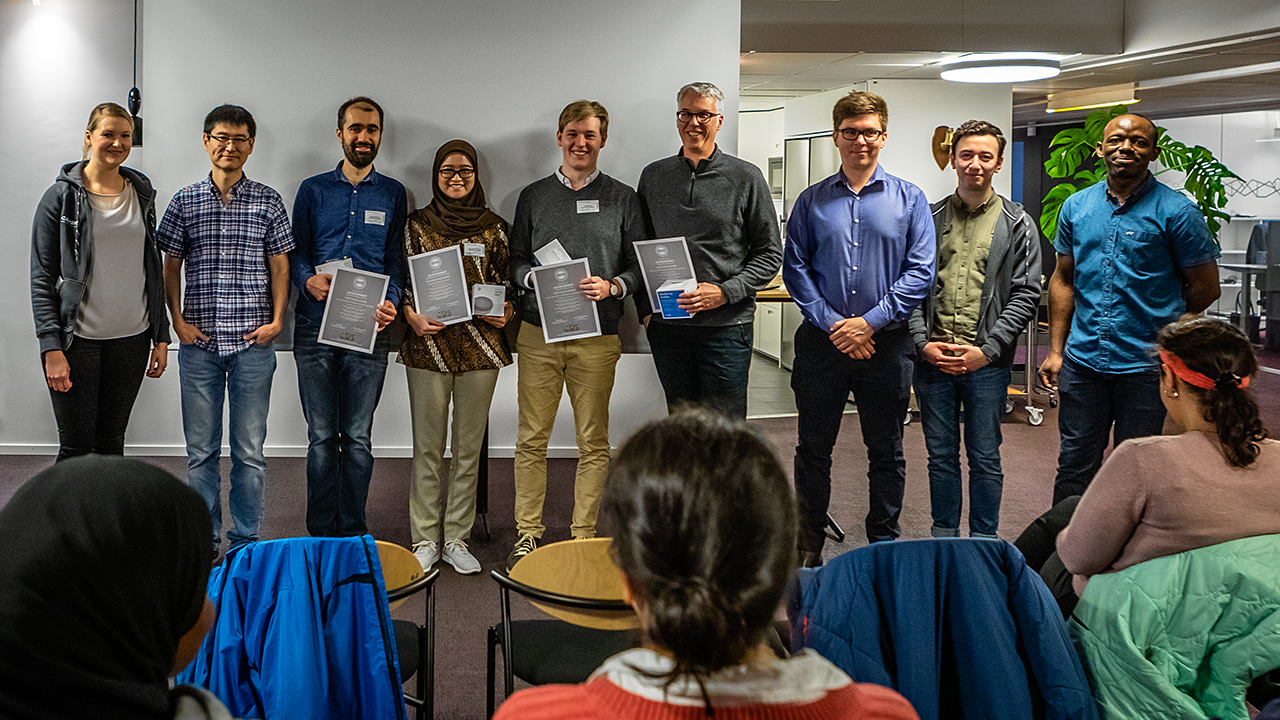The Finalists and the team behind the contest
We are proud to present to you the two finalist contributions! Replacement Doses of Vitamin D and Opioid Conversion to Morphine Milligram Equivalent.
Here are the team members.
Aulia Zahrina Qashri
Description of professional background: I graduated from my undergraduate study in informatics engineering in 2016, but I‘ve been working as a musician since 2010. I also did an internship at the International Office of my university from 2014-2016. I’m currently a 2nd year Master’s student in Health Informatics at Karolinska Institutet.
Interest in clinical decision support solutions: Being someone who is surrounded by healthcare professionals makes me learn that they are often preoccupied with a lot of things. I would be honored if I could help them by lessening their workload using CDS solutions. But most importantly, it is also to provide better care delivery and safety for the patients.
Motivation for participating in the CDS Summer App Challenge 2018: To present ideas for CDS development that can help to improve healthcare and can be beneficial for a lot of people.
Mark Bothe, RPh, Master’s in Health Informatics, Karolinska Institutet
I graduated from the Oregon State University School of Pharmacy in 1988. I’ve been a clinical hospital pharmacist at a medium sized hospital system in Portland, Oregon, however the last 6 years of which I was the lead Epic pharmacy trainer and clinical informaticist for the health system. I have personally worked in creating and customizing CDSSs within our Epic system. I always felt gratified when I could make Epic work more efficiently for the end-user and CDSSs were the tool that could make that happen. I was exposed to the Summer App Challenge in September while participating at an open house at Cambio. This provided us with an opportunity to rapidly produce something as a team and join in the challenge.
Tom Seinen, Master’s in Health Informatics, Karolinska Institutet
I developed an interest in clinical decision support systems owing to my courses at Karolinska Institutet. The opportunity to apply the theories in practice, combined with a good CDS idea from our team, motivated me to participate in the CDS summer app challenge.
I have a bachelor’s degree in computer science and a master’s in bioinformatics from Leiden University. Currently, I am in the second year of the Health Informatics master program at Karolinska Institutet. My interests lie in machine learning and data analytics in healthcare and clinical settings.
Daniel Keszthelyi, Master’s in Health Informatics, Karolinska Institutet
I am now in the Health Informatics program of Karolinska Institutet. I have a background in computational physics and computer science, I have a strong interest in knowledge representation and the application of artificial intelligence in knowledge gathering, representation and interpretation. Clinical decision support can be a good application for these fields. The opportunity to discover more in depth the current stage of CDS in the practice motivated me to participate in the CDS summer app challenge.
What is Clinical Decision Support?
Clinical decision support (CDS) is a systematic computerized approach developed to assist medical practitioners in making healthcare-related decisions under specific clinical circumstances. CDS applications are based on clinical practice guidelines, which are generally the result of months, sometimes decades, of major observational and interventional studies that have generated scientifically valid recommendations on diagnostics, screening tests and treatment modalities.
Due to the vast number of potential clinical scenarios as well as continuous scientific progress, clinical practice guidelines are prone to rapid change. They quickly become outdated and/or too voluminous to handle in their current format, and therefore problematic to consult in real-time. In an attempt to target these issues, computerized clinical decision support applications have been developed and integrated into the clinical workflow process. These applications can analyze healthcare data at the point of care, thus delivering timely, accurate, guideline-based and personalized recommendations that improve the safety, quality and efficiency of healthcare delivery.


